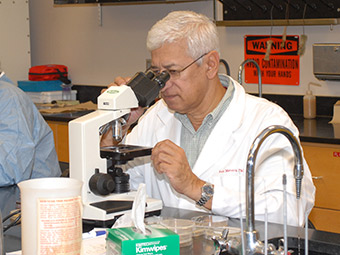Taphonomic Study of Japanese Quail (Coturnix japonica) Bone Modification Resulting from the Burial and Feeding Behavior of the American Burying Beetle (Nicrophorus americanus)
Document Type
Article
Publication Date
6-2014
Abstract
Actualistic and observational studies of bird bone disarticulation, wear, and damage contribute to understanding the development of fossil assemblages and distinguishing non-cultural from cultural deposition. The American burying beetle (Nicrophorus americanus) is known for seeking small bird carcasses to lay eggs and provide food for its brooding larvae. In this study, we examine the resulting body parts of Japanese quail (Coturnix japonica) carcasses to investigate the taphonomy resulting from the burial and feeding behavior of the beetles. Evidence of breakage, cracking, embedding, flaking, furrowing, pitting, polishing, and staining was observed on the bones of carcasses balled and brooded by the beetles. Based on the results, the implication of potential bird carcass intrusion in archaeological sites, where the beetle is found, is discussed.
Recommended Citation
Dirrigl, F.J., Jr. and Perrotti, L. (2014), Taphonomic Study of Japanese Quail (Coturnix japonica) Bone Modification Resulting from the Burial and Feeding Behavior of the American Burying Beetle (Nicrophorus americanus). Int. J. Osteoarchaeol., 24: 272-278. https://doi.org/10.1002/oa.2365
Publication Title
International Journal of Osteoarchaeology
DOI
https://doi.org/10.1002/oa.2365



Comments
Copyright © 2013 John Wiley & Sons, Ltd.
https://onlinelibrary.wiley.com/share/ETQT4VCETWHTEC2TVRNW?target=10.1002/oa.2365